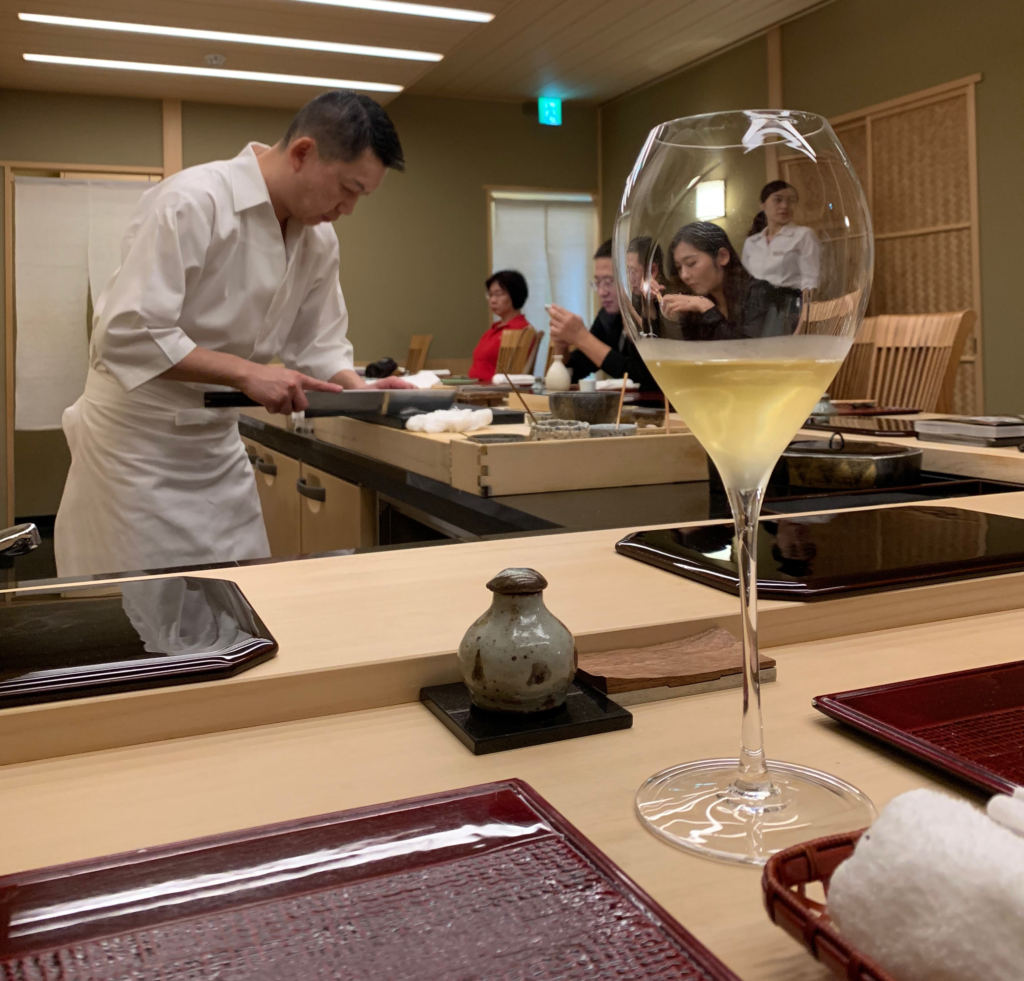If criticsof the screen and stage can single out individual actors for praise andcriticism, then why can’t restaurant critics? Surely, there is much more on theline when paying $100, $200, $300 or more for a tasting menu relative to theprice of entry for most visual entertainment.
As flavorincreasingly takes a backseat to the spectacle of presentation,people-watching, and “eat-with-your-eyes” Instagram posting, service staff doesfar more than simply drop off plates. In the most hallowed, hushed fine diningestablishments, whatever energy the host or hostess and then the serverpossesses with quite poignantly set the tone for the entire experience. Atleast, one hopes, until the food itself has its say. Often, of course, it isnot so simple.
Any dinerwho has spent time reading over Yelp reviews has likely noticed a certainspecies of critique. The fare itself receives a passing grade—perhaps evenmeriting praise. As does the location, the ambiance, the overall value, and thelibations. In fact, the evening would have been perfect if not for someimagined slight from the service staff. And perhaps that eye roll, thatrejected request, that slight misstep in timing or accurately taking the order didhappen. But such a reviewer is all-too-happy to dish out a single-starreview for what would have been remedied in the moment with the appropriatemanagerial engagement and oversight.
Yet itfeels good, on occasion, to stoke the hatred burning inside of us. We do not wantto have it made up to us because we demand perfection, and a perfectly niceevening was already ruined. There are no second trips to the Broadway show, soeach member of the cast had better nail their lines. And, should theystumble, they had better cartwheel into a movement even more spectacular, so asto erase any memory of the mistake altogether.
That, I suppose, is the essence of what I am talking about. Not appraising hospitality employees on the perfection with which they play their part, for the art form is essentially, irrevocably interactive and essentially attached to the deeply flawed nature of any given guest. Rather, the performance of which I speak is more like that of the carnival contortionist, who amazes by their ability to bend and twist far beyond the crowd’s expectations. Those expectations, of course, are individually held. Some tables may be more than willing to meet their server halfway, to work with the staff so that the needs of all parties involved go met. Other diners, particularly those skeptical of fine dining (or altogether jaded from far too much of it), maintain a set of trials and tests that any would-be waiter or waitress must pass with flying colors to avoid a complaint to their manager and a cut taken from their tip.
I know whatyou are thinking, and I must vehemently agree: what miserable people! Alas,once seated, such a party presents quite the conundrum. Any fuss they make willundoubtedly catch the attention of other diners, with problems pertaining tofood preparation—however unfounded—especially prone to inspire undue suspicionfrom guests whose experience has been otherwise unperturbed. Yes, and oncesomeone makes a big enough stink—god forbid they raise their voice with a few,choice negative remarks—the entirety of the dining room can expect “comped”drinks, desserts. Maybe servers aren’t contortionists, but lion tamers!
And perhapsthat is the tension that makes the hospitality “performance” so gripping. Agood server needs to charm the guest who complains about finding (their own)hair in their food. A good server needs to soothe the guest who had a bad dayand just needs to take it out on someone “beneath” them. A good server needs toinstruct diners on any number of things consumable or historical within thewalls of their restaurant. In some cases, they bear the brunt of correcting alifetime of illogical aversions and bugaboos that have spanned generations. Ifthey are lucky, a good server will not only be able to balance all of this, butthey will be blessed with the rare tables that respect them, that love (or arewilling to love) the restaurant, that want to try new things and takesuggestions for they understand the server is not a servant, but afrontline agent of the chef’s artistic expression and an absolute pillar of thedining experience.
Do not getme started on the bussers, bartenders, hosts, and hostesses, each of whoendures a personal hell in their interactions with the same customers whotorture their servers so. Alas, the pervading irony of the interactions I amdescribing is that every “bad” table drains the patience, the kindness, the verysoul of their server. They dilute the experience for every proper tableready to exchange the positive energy that hospitality promotes. Thus, atalented server need succeed in putting out fires—effortlessly, gracefully,without a hint of resentment (for their manager will surely hear aboutthat!)—while tending the flame inside them, the flame that is stoked (dare Isay, rejuvenated) with every positive encounter.
I have cometo call this flame the “spirit of hospitality,” and it is no fleeting thing,but more akin to an everlasting itch with which only some of us are afflicted.Scratching that itch means making someone happy, be it with a plate of food, apour of wine, a kind word, or a mere smile. This spirit of hospitality helpsexplain why legions of talented people endure the misfortune of an uncertain,ephemeral industry. It helps explain why that one good table, that singlemagical encounter, can make an evening “in the weeds” worth it.
Critiquingservers in the same manner as stage actors is not a means to browbeat themmore. On the contrary, it offers the first step towards educating therestaurant-going public on exceptional service at a technical, personal, andcircumstantial level. Perhaps it may even serve as a means of correctingdiners’ bad behavior (one can dream).
Until then,servers, take a bow!



